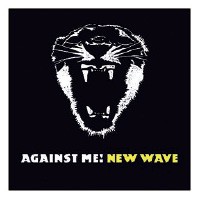Ike Turner, whose role as one of rock’s critical architects was overshadowed by his ogrelike image as the man who brutally abused former wife and icon Tina Turner, died Wednesday at his home in suburban San Diego. He was 76.
“He did pass away this morning” at his home in San Marcos, in northern San Diego County, said Scott M. Hanover of Thrill Entertainment Group, which managed Turner’s musical career.
There was no immediate word on the cause of death, which was first reported by celebrity Web site TMZ.com.
T
urner managed to rehabilitate his image somewhat in his later years, touring around the globe with his band the Kings of Rhythm and drawing critical acclaim for his work. He won a Grammy in 2007 in the traditional blues album category for “Risin’ With the Blues.”
But his image is forever identified as the drug-addicted, wife-abusing husband of Tina Turner. He was hauntingly portrayed by Laurence Fishburne in the movie “What’s Love Got To Do With It,” based on Tina Turner’s autobiography.
In a 2001 interview with The Associated Press, Turner denied his ex-wife’s claims of abuse and expressed frustration that he had been demonized in the media, adding that his historic role in rock’s beginnings had been ignored.
“You can go ask Snoop Dogg or Eminem, you can ask the Rolling Stones or (Eric) Clapton, or you can ask anybody — anybody, they all know my contribution to music, but it hasn’t been in print about what I’ve done or what I’ve contributed until now,” he said.
Turner, a member of the Rock and Roll Hall of Fame, is credited by many rock historians with making the first rock ‘n’ roll record, “Rocket 88,” in 1951. Produced by the legendary Sam Phillips, it was groundbreaking for its use of distorted electric guitar.
But as would be the case for most of his career, Turner, a prolific session guitarist and piano player, was not the star on the record — it was recorded with Turner’s band but credited to singer Jackie Brenston.
And it would be another singer — a young woman named Anna Mae Bullock — who would bring Turner his greatest fame, and infamy.
Turner met the 18-year-old Bullock, whom he would later marry, in 1959 and quickly made the husky-voiced singer the lead singer of his group, refashioning her into the sexy Tina Turner. Her stage persona was highlighted by short skirts and stiletto heels that made her legs her most visible asset. But despite the glamorous image, she still sang with the grit and fervor of a rock singer with a twist of soul.
The pair would have two sons. They also produced a string of hits. The first, “A Fool In Love,” was a top R&B song in 1959, and others followed, including “I Idolize You” and “It’s Gonna Work Out Fine.”
But over the years they’re genre-defying sound would make them favorites on the rock ‘n’ roll scene, as they opened for acts like the Rolling Stones.
The densely layered hit “River Deep, Mountain High” was one of producer Phil Spector’s proudest creations. A rousing version of “Proud Mary,” a cover of the Creedence Clearwater Revival hit, became their signature song and won them a Grammy for best R&B vocal performance by a group.

